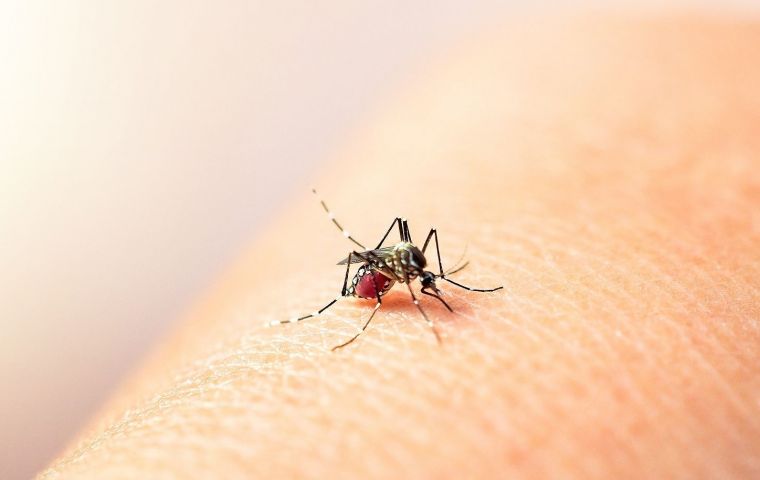MercoPress. South Atlantic News Agency
Brazil: Over 5,000 deaths from dengue fever reported in 2024
 The State of São Paulo accounted for most of the proven cases of dengue
The State of São Paulo accounted for most of the proven cases of dengue Brazilian authorities issued a bulletin attesting to 5,008 deaths due to dengue fever so far this year, Agencia Brasil reported. The total number was around fourfold that of the same period last year when 1,179 casualties were recorded. In addition, 2,137 deaths are still under investigation to determine whether they were caused by dengue.
Data from the Arbovirus Surveillance Panel indicate that the country has 6,449,380 confirmed cases of dengue. The incidence rate of the disease, at this moment, is 3,176.1 cases per 100,000 inhabitants and the lethality in probable cases is 0.08, Agencia Brasil also noted.
The data show that 55% of probable cases are concentrated in women and 45% in men. The 20-29 age group recorded the highest number of infections, followed by the 30-39 and 40-49 groups. The ones with the lowest number of cases were children under 1 year of age, senior citizens over 80 years of age, and children aged between 1 and 4 years.
The State of São Paulo accounted for most of the proven cases of dengue (2,066,346), followed by Minas Gerais (1,696,909), Paraná (644,507), and Santa Catarina (363,850). The states with the lowest number of proven cases were Roraima (546), Sergipe (2,480), Acre (4,649), and Rondônia (5,046).
When the incidence coefficient of the disease is considered, the Federal District (Brasilia) appears on top, with 9,749.7 cases per 100,000 inhabitants, followed by Minas Gerais (8,266.9), Paraná (5,632.2) and Santa Catarina (4,781.5). The states with the lowest coefficients are Roraima (85.8), Sergipe (112.2), Ceará (138.9), and Maranhão (162.1).
Last week, during the Global Pandemic Preparedness Summit in Rio de Janeiro, Brazilian Health Minister Nisia Trinidade pointed out that it was ”time to translate equity and solidarity into concrete actions to guarantee access to products to combat pandemics and other health emergencies.” She added that concern is also needed with neglected diseases, such as arboviruses like dengue.




Top Comments
Disclaimer & comment rulesCommenting for this story is now closed.
If you have a Facebook account, become a fan and comment on our Facebook Page!